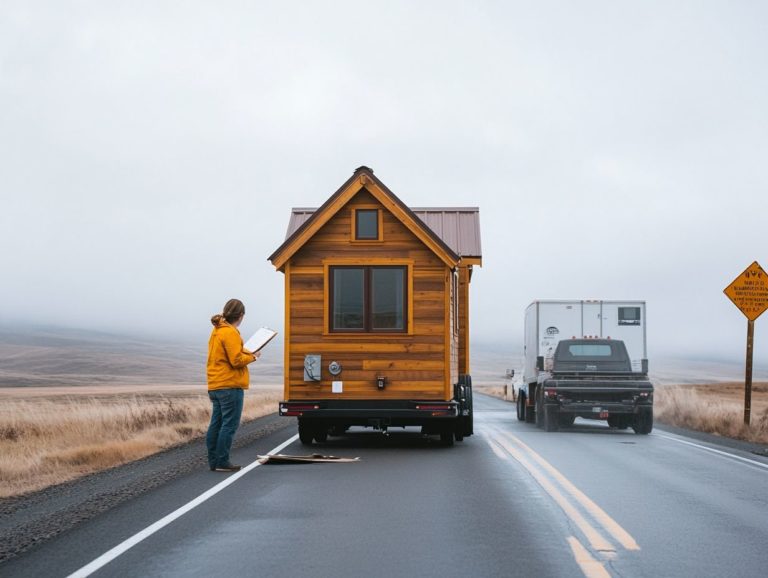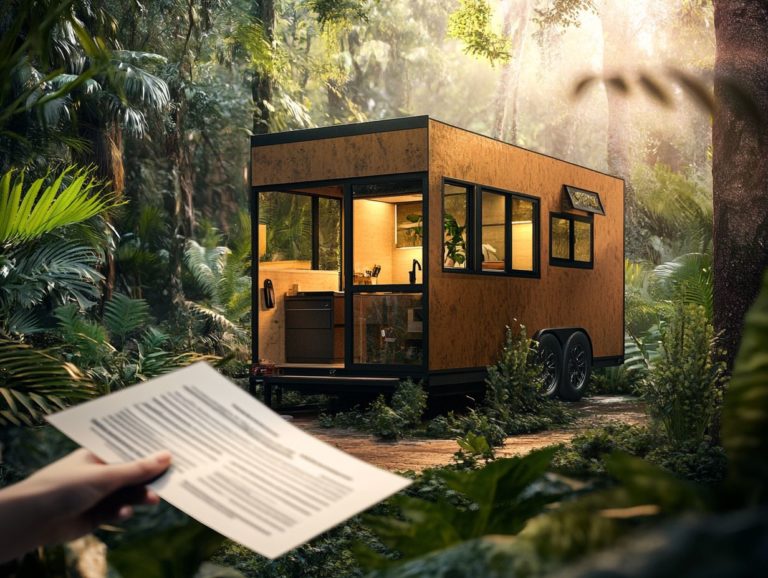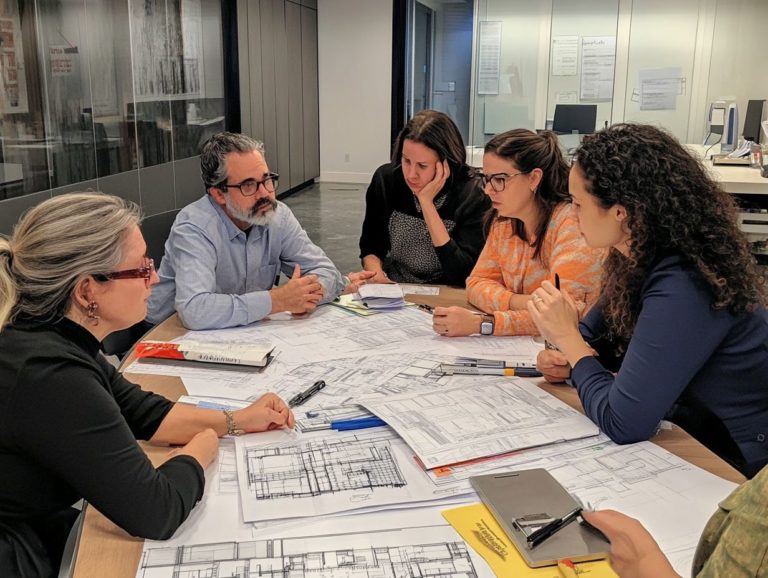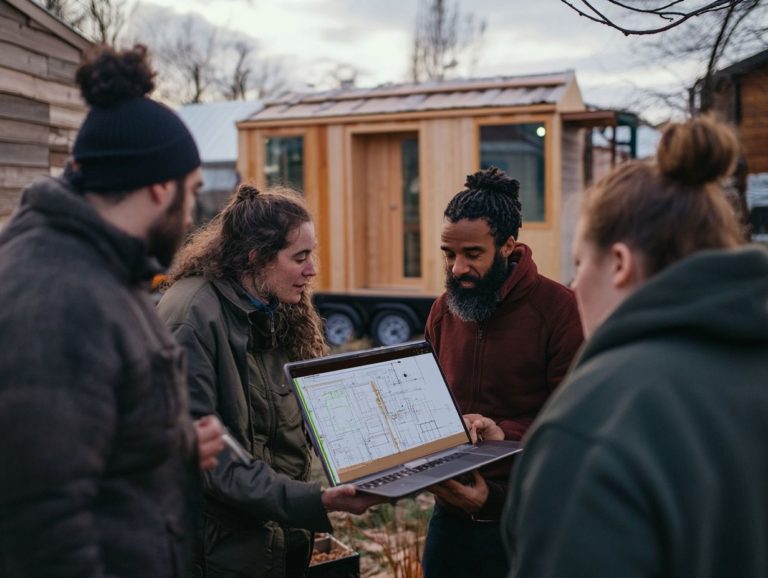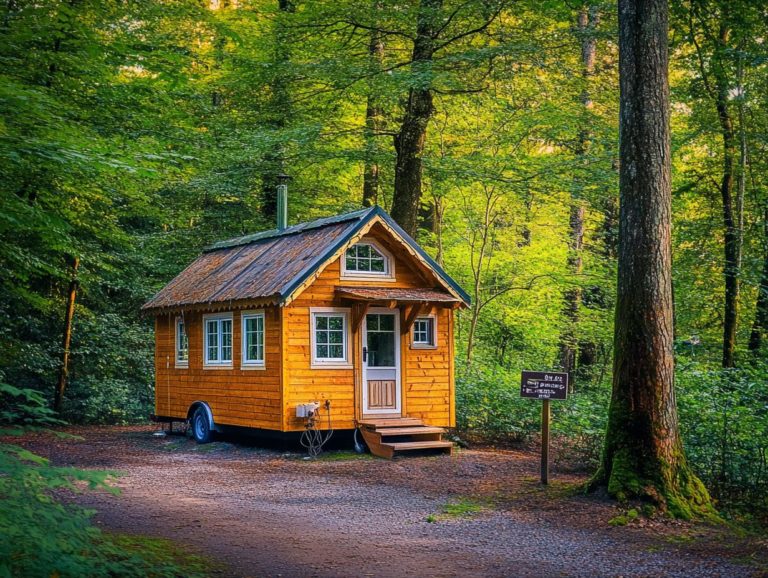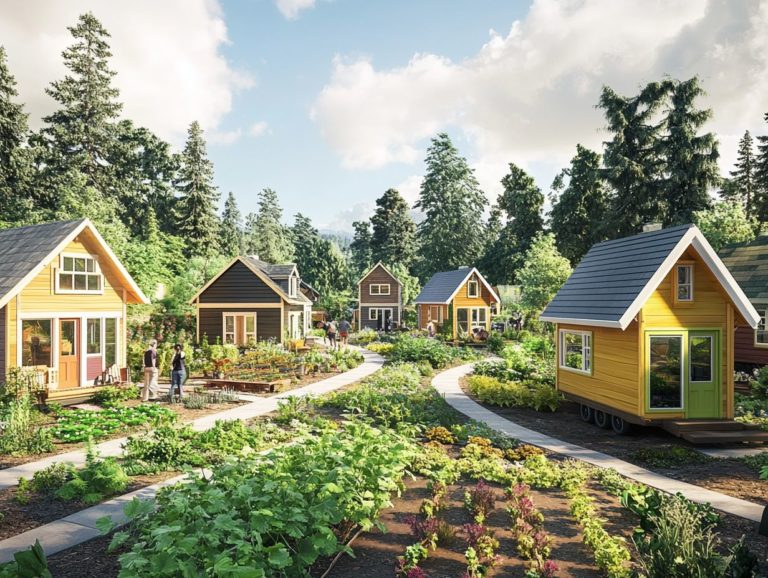Tiny House Building: Essential Legal Steps
Building a tiny house presents an exhilarating opportunity, promising both minimalism and financial freedom.
This is especially true with the growing popularity of the tiny home lifestyle.
However, understanding the laws can be quite the challenge, particularly when looking into the specific zoning laws that apply to tiny home construction. You’ll need to grasp what qualifies as a tiny house while deciphering permits, zoning regulations, and building codes there s much to consider.
This guide will empower you to navigate the essential legal requirements for tiny house construction, whether you choose the DIY tiny house route or decide to hire a contractor experienced in tiny home materials.
Uncover valuable tips for a seamless process and the critical steps to ensure your tiny house is not just a cozy retreat, but also fully compliant with local regulations and building codes.
Contents [hide]
- Key Takeaways:
- Understanding Legal Requirements for Tiny House Building and Tiny Home Construction
- Permits and Zoning Regulations
- Tiny House Building Codes
- Insurance Considerations
- Contractor or DIY?
- Tips for a Smooth Legal Process in Tiny House Renovation
- Frequently Asked Questions
- What are the essential legal steps to consider when building a tiny home?
- Do I need a permit to build a tiny house?
- Are there any zoning restrictions for building a tiny house?
- What building codes do I need to follow when building a tiny home?
- Do I need to purchase land to build a tiny home?
- Are there any legal considerations for living in a tiny home?
Key Takeaways:
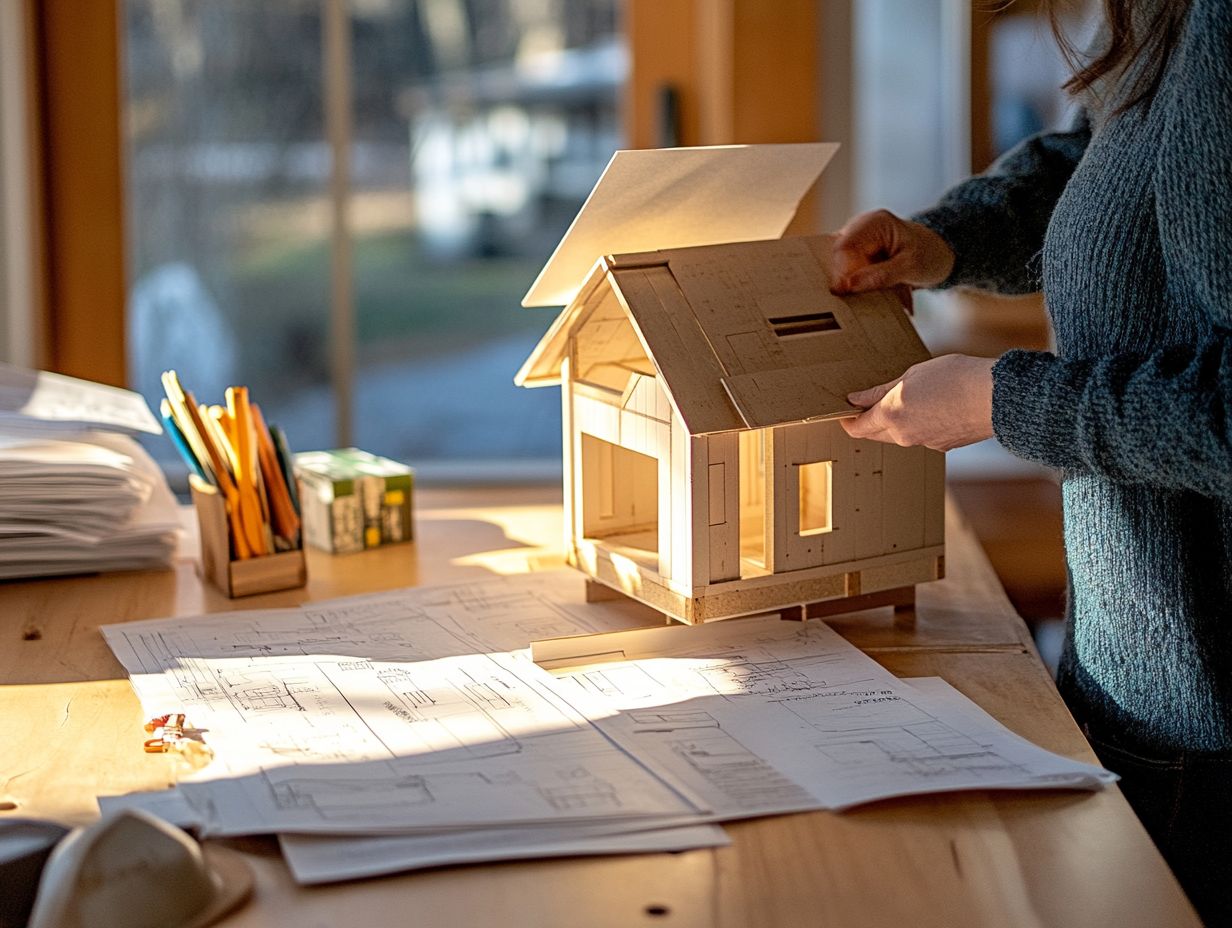
- Understand your local laws and regulations before building a tiny house to ensure legality.
- Obtain necessary permits and comply with building codes to avoid legal issues during construction.
- Consider insurance options and weigh the pros and cons of hiring a contractor versus building your tiny house yourself.
Understanding Legal Requirements for Tiny House Building and Tiny Home Construction
Understanding the legal requirements for building a tiny home is essential for anyone aspiring to embrace the tiny house lifestyle. Each region presents its own unique set of challenges, shaped by local zoning laws and building codes.
Zoning laws determine how land can be used, while building codes set safety standards for construction. Depending on where you are, these laws may determine whether your tiny house is classified as a permanent residence or a mobile home, which could influence your design choices and placement options.
Navigating these complexities is vital before you embark on your tiny home journey. Are you ready to design your compact oasis?
What is a Tiny House and is it Legal to Build?
A tiny house is your compact oasis, typically under 400 square feet, crafted to encourage a minimalist lifestyle while making the most of every square inch.
These small homes often showcase innovative design elements that marry aesthetics with practicality think multifunctional furniture and clever vertical space utilization. However, diving into the tiny house movement isn t without its hurdles, especially when it comes to understanding the tiny house utilities you will need.
You might find that in certain areas, tiny homes are classified as recreational vehicles (RVs), bringing along a set of specific restrictions regarding placement and usage. On the flip side, some regions impose strict building codes that mandate minimum square footage, complicating the construction and licensing process.
The classification of your tiny house can also impact the installation of essential utilities like plumbing and electrical systems, as compliance with local standards can vary significantly based on zoning laws. Grasping these regulations is vital for anyone considering a tiny home, ensuring that your vision harmonizes seamlessly with legal requirements.
Permits and Zoning Regulations
Navigating permits and zoning regulations is an essential step for anyone contemplating the construction of a tiny home, as these legal frameworks fundamentally shape the feasibility of your project right from the beginning.
Each municipality has its own unique requirements for tiny house construction, making it crucial for you to familiarize yourself with local regulations that could impact your building plans. This includes understanding the necessity for permits, adhering to building codes, and ensuring compliance with zoning laws that could dictate your tiny home’s foundation type and size. For more detailed information, check out tiny house legal resources you should know.
By grasping these elements, including the cost of materials and the tools you’ll need, you can save both time and resources, paving the way for a successful and legally sound tiny house journey.
Get started now and ensure your tiny home meets all the legal requirements!
Navigating Building Permits and Zoning Restrictions
Navigating the world of building permits and zoning restrictions is crucial for homeowners eager to construct a tiny home. These regulations dictate where and how you can build. Each local area has its own unique set of rules that can significantly impact the feasibility of your tiny house project, influenced by local regulations regarding land use and residential classifications.
By gaining a clear understanding of these regulations, you can streamline the approval process and shape your tiny house design to ensure compliance.
To successfully secure building permits, you’ll typically begin by submitting detailed architectural plans that align with local building codes and your tiny house design. Gather all necessary documents to kickstart your tiny home journey, such as proof of property ownership and any required environmental assessments.
Zoning restrictions may impose minimum lot sizes and regulations concerning utility access, which could heavily influence your project s viability. Dive into these regulations to simplify your application process and sidestep common pitfalls by diligently researching and seeking advice from local officials.
Engaging with the local community also offers valuable insights into best practices. This will ensure your journey through the often intricate bureaucratic maze is as smooth as possible.
Tiny House Building Codes
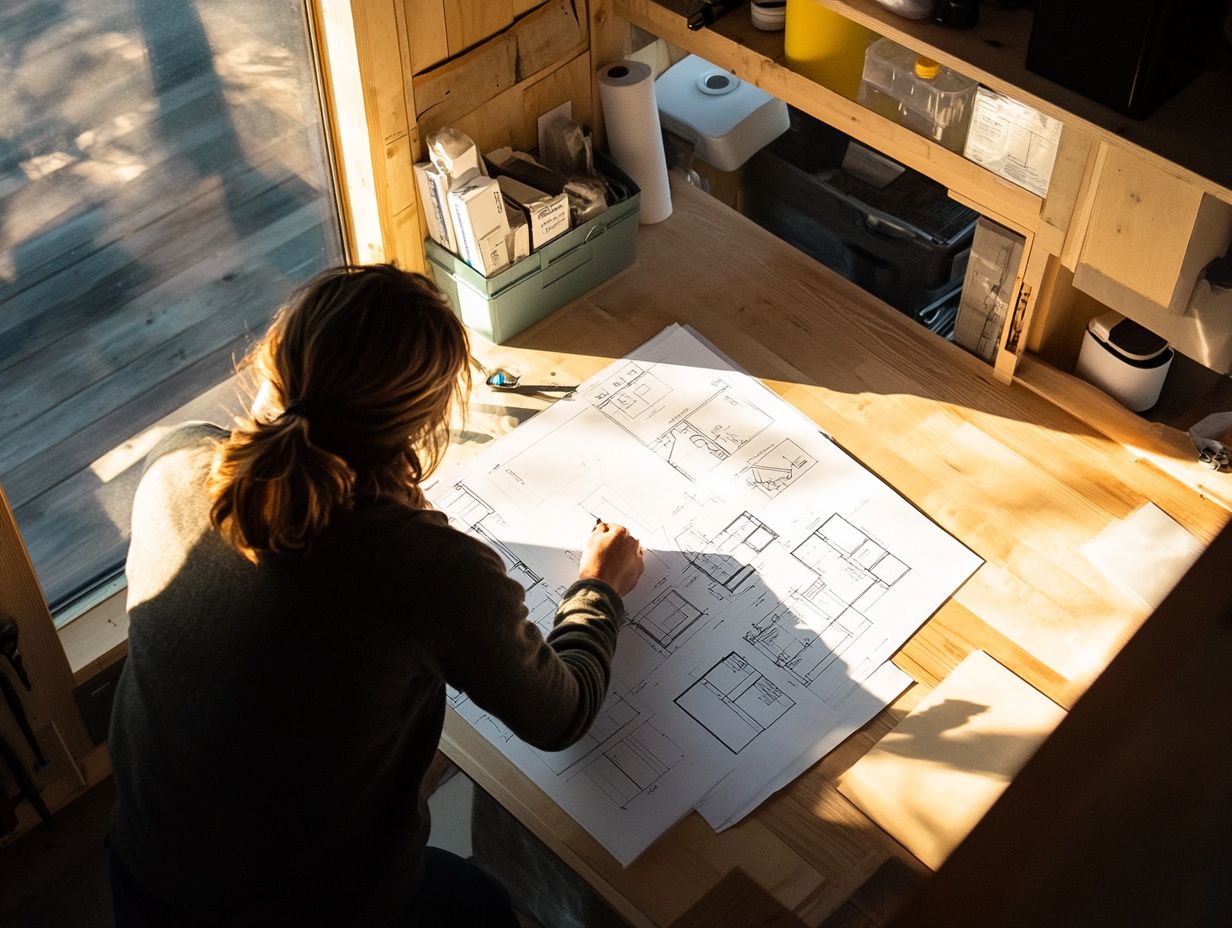
Complying with local building codes is absolutely essential when constructing a tiny house. This ensures both the safety of your structure and its legality in the eyes of local authorities.
These codes cover a range of design and construction elements:
- Foundation
- Insulation
- Plumbing
- Electrical systems
To successfully navigate the intricacies of building a tiny house that aligns with safety standards and local regulations, familiarize yourself with these codes.
Complying with Local Building Codes
Complying with local building codes is crucial for you as a tiny home builder. These codes provide essential guidelines that safeguard safety and structural integrity. Each locality has specific requirements that affect everything from the materials you choose for construction to the installation of utilities like plumbing and electrical systems.
Pay particular attention to regulations regarding fire safety. These include the placement of smoke detectors, exit routes, and structural requirements that dictate foundation types and load-bearing walls.
Ensuring utility installations meet local standards is key to avoiding potential hazards. Conduct thorough research through local government websites or consult with building officials to navigate these complexities, particularly if you want to incorporate solar panels or compact appliances.
Partnering with experienced builders or contractors who specialize in tiny homes can provide invaluable insights. This collaboration ensures that every aspect of your construction adheres to necessary codes, ultimately resulting in a well-built and compliant dwelling.
Insurance Considerations
When building a tiny home, understanding insurance considerations is essential for safeguarding your investment and ensuring compliance with local regulations.
Explore various types of coverage available for tiny houses, as these can differ based on factors such as the home’s classification, whether it s mobile or stationary, and the materials employed in construction.
Adequate insurance will shield you from potential damages and offer peace of mind throughout the building process. Are you ready to start looking into insurance options for your tiny home?
Insuring Your Tiny House
Insuring your tiny house is an essential step you can t overlook. It shields you from risks such as liability claims and damages from natural disasters. Understanding your insurance options can enhance your peace of mind and financial security.
There are various types of insurance designed specifically for tiny homes. General liability insurance is crucial; it provides coverage if someone is injured on your property and protects you from lawsuits. Personal property coverage safeguards your belongings against theft or damage, while structural coverage protects the building itself from harm.
Assess your unique risks, including your location, climate, and how you use your home. These factors will influence your insurance choices. Understand how local laws affect your insurance needs; some areas may require specific coverage options that impact your policy and costs, especially for mobile tiny homes.
Contractor or DIY?
Choosing between hiring a contractor and going DIY for your tiny home is a pivotal decision. Each option has its own set of advantages and challenges.
Working with a contractor can simplify the process and ensure compliance with local laws and building codes. However, taking on a DIY project allows for personal expression and can save you on labor costs.
Don t miss out on weighing the pros and cons it could make all the difference in your tiny house journey!
Pros and Cons of Hiring a Contractor vs. Building Yourself
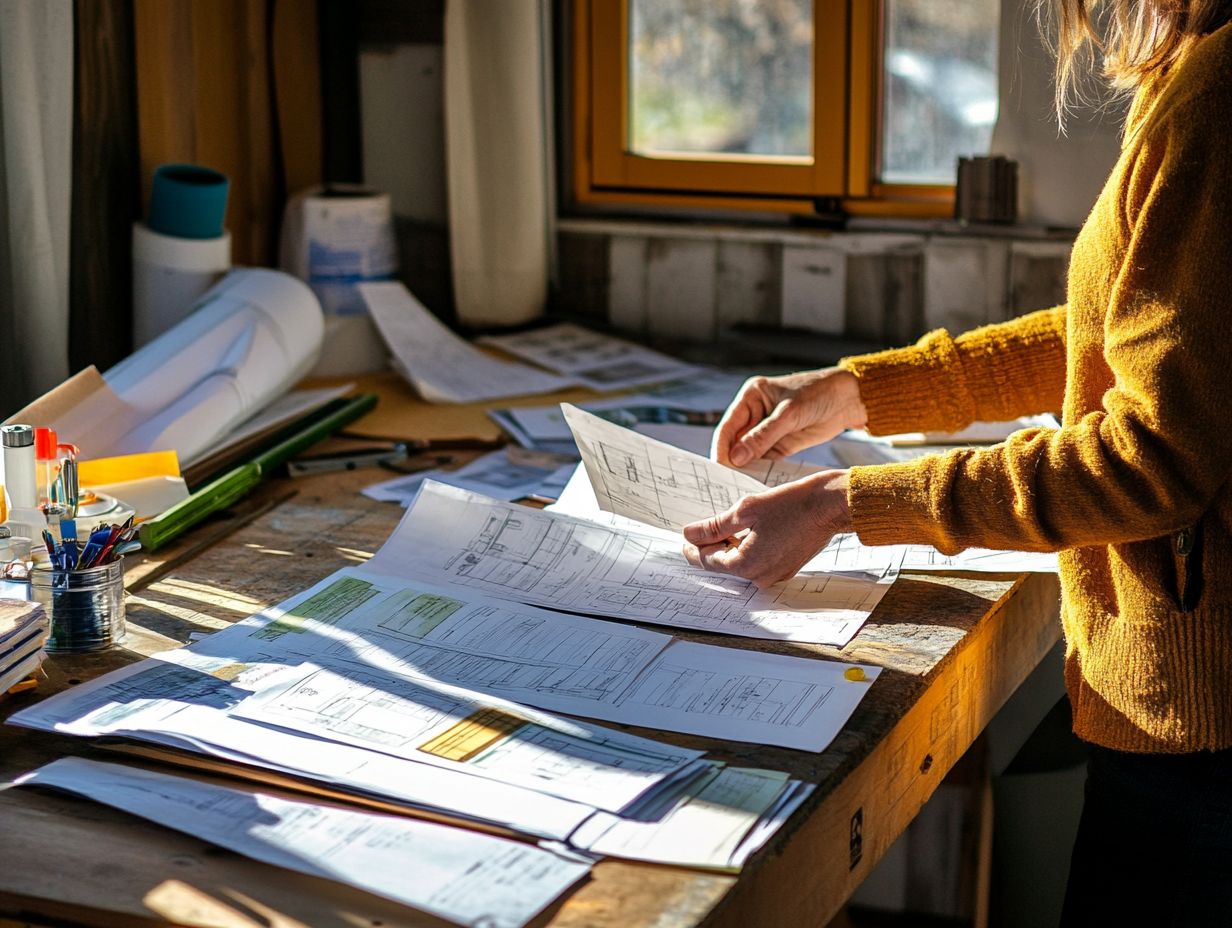
When deciding whether to hire a contractor or go the DIY route, weigh the benefits and drawbacks of each option. Hiring a contractor offers professional expertise, compliance with building codes, and faster completion times. On the other hand, a DIY approach gives you complete creative control and the chance for lower costs.
If you choose to hire a contractor, you gain access to their extensive experience in tiny house construction. They can navigate local regulations and help you avoid costly mistakes, particularly when it comes to tiny house occupancy permits and unique site challenges.
If you re a DIY enthusiast, customizing every detail allows for a design that reflects your personal style while potentially saving on labor costs. However, time constraints or unfamiliarity with construction methods might make hiring a professional the best choice to ensure your final product is both structurally sound and compliant. Consider incorporating space-saving solutions and tiny house materials to enhance your design.
Tips for a Smooth Legal Process in Tiny House Renovation
Navigating the legal requirements of building a tiny home may seem daunting, but with the right strategies, you can ensure a smoother experience from start to finish.
Effective planning is key. Understand local building codes, secure necessary permits, and adhere to zoning regulations that can significantly influence your tiny home construction.
By embarking on this journey with the right information and resources, you can confidently manage the legalities of your tiny home project, including tiny house utilities and tiny house plumbing. Additionally, understanding tiny house zoning laws is crucial for a smooth process.
Key Steps to Follow for a Successful and Legal Build of Your tiny house
To achieve a successful and legally compliant build for your tiny house, it’s essential to follow key steps that involve meticulous planning and adherence to local regulations. Begin with a clear understanding of zoning laws which determine how land can be used and building codes, which set the standards for construction. These will significantly influence the feasibility of your tiny home project.
Conducting comprehensive research about your specific area is crucial. Regulations can vary widely from one location to another, including understanding RV regulations if you plan to travel with your tiny home. It’s also important to familiarize yourself with tiny house regulations for your state. Create a handy checklist to streamline your tiny house journey:
- Verify local zoning laws and understand how they affect your tiny house foundation.
- Apply for the necessary permits that allow for construction, including those for tiny house electrical and plumbing systems.
- Plan how utilities will be managed, including tiny house plumbing and tiny house electrical. Consider options like solar panels for energy efficiency.
Maintaining regular communication with local authorities is crucial. It helps you address unforeseen issues and fosters a positive relationship that can be advantageous for future projects, especially if you decide to expand or renovate your tiny home later. For more insights, check out our article on tiny house living and zoning.
Frequently Asked Questions
What are the essential legal steps to consider when building a tiny home?
The essential legal steps to consider include obtaining building permits, complying with zoning regulations, and following building codes.
Do I need a permit to build a tiny house?
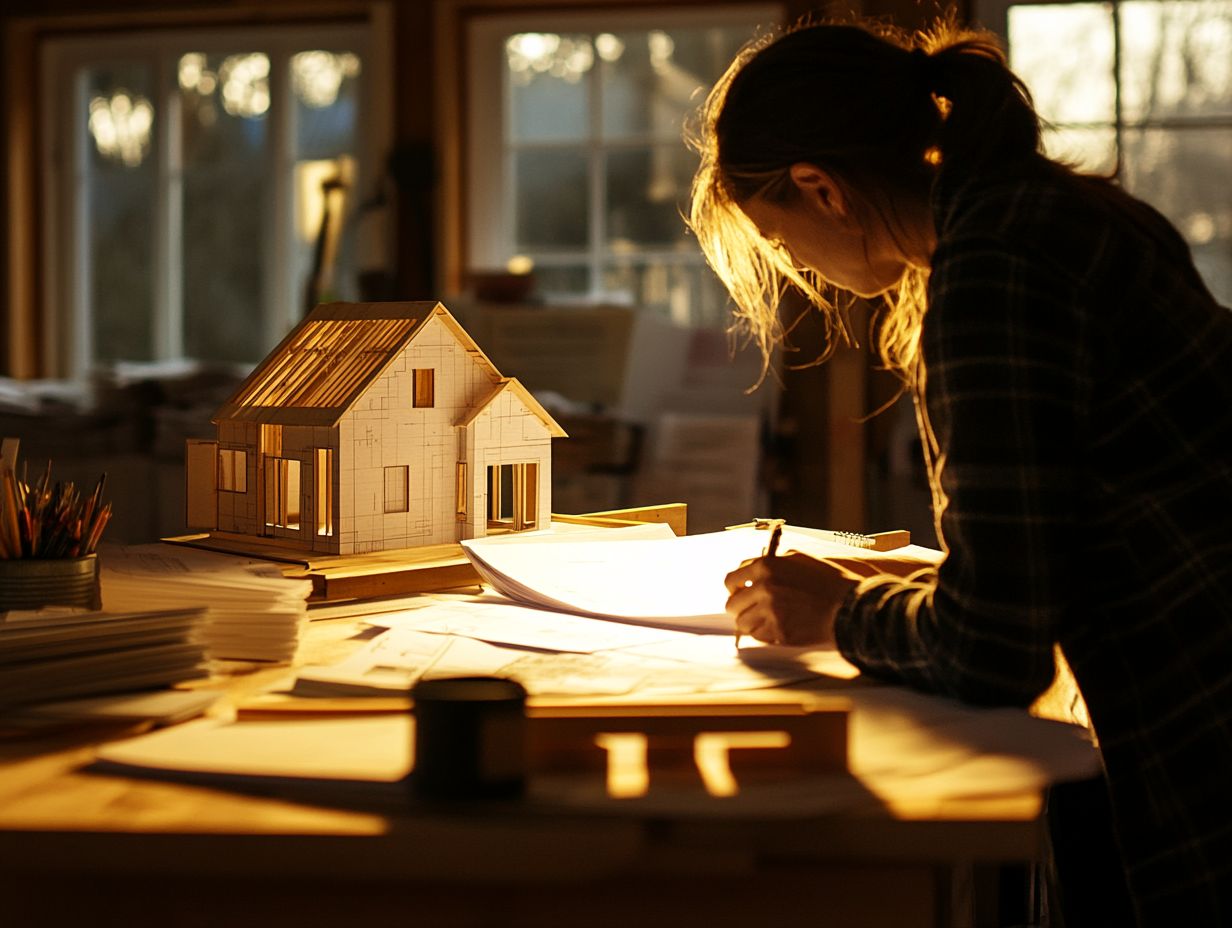
Yes, you will typically need a building permit to construct a tiny house, just like any other structure. However, the specific requirements may vary depending on your location and whether you are building on a trailer or a permanent foundation.
Are there any zoning restrictions for building a tiny house?
Yes, there are often zoning restrictions that dictate where and how you can build a tiny house. Make sure to research these regulations to avoid any legal issues, especially regarding tiny house foundations and local regulations.
What building codes do I need to follow when building a tiny home?
You will need to follow the same building codes as any other residential structure, such as those for tiny house electrical, tiny house plumbing, and fire safety. Consulting with a professional is important to ensure your tiny house meets all necessary codes.
Do I need to purchase land to build a tiny home?
Not necessarily. Some people choose to build their tiny house on wheels, allowing for more flexibility in parking and living arrangements. However, if you plan to have a permanent foundation, you will need to purchase land, considering your tiny home budget.
Are there any legal considerations for living in a tiny home?
Yes, there may be legal considerations for living in a tiny home, such as obtaining a certificate of occupancy, paying property taxes, and complying with local housing regulations. Don t miss out on the chance to research and understand these requirements before moving into a tiny house.
Ready to start your tiny house project? Begin today by researching your local regulations!

